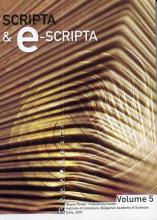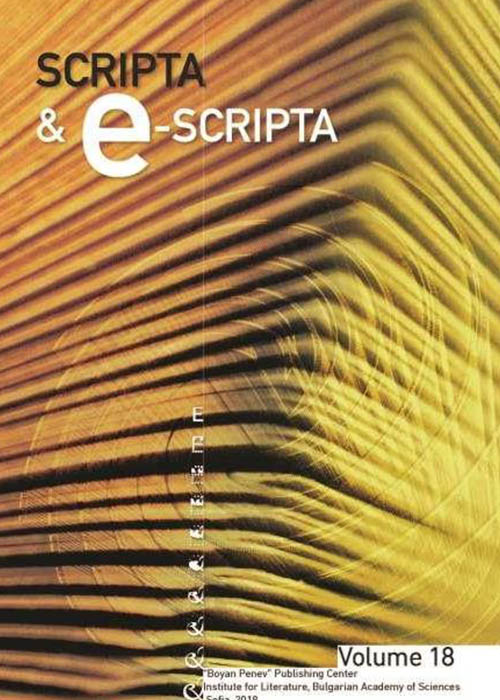The Origin of Bulgarian Relative Pronouns

- Author(s): Ivan Iliev
- Subject(s): Language and Literature Studies // Semantic analysis // Diachronic and synchronic analysis // Relative clauses //
-
Published by: Institute for Literature BAS

- Print ISSN: 1312-238X
- Summary/Abstract:
This article is part of forthcoming research on the history of Bulgarian relative pronouns. The question of their nature, origin, and evolution is inextricably bound up with the repeatedly discussed problem of the so-called replacement of their initial anaphoric stem by an ‘interrogative’ one. The relativization is a process of transformation of mutually dependent sentences (interrogative: who will…?; conditional: if someone…) into relative clauses, through changing their initial meaning, and transforming the noun, or the pronoun, which unifies them semantically, into a relative conjunction, which, usually has gender, number, and case. The acquirement of relative function by the *kw- stem is a result of a choice between several alternatives (*Ч-, *t- и *kw- root). Several possible causes and ways for the course of this process, mentioned in this article, can be supposed. The process of replacement of the old stem was catalyzed by several factors, which acted with different force, with different types of generated relative clauses, and with different relative pronouns. Probably, the relative *kw- stem was established lastly in the developing (commenting, procentential) clauses, under the influence of other relative clauses.
Journal: Scripta & e-Scripta vol 5, 2007
-
Page Range: 207-227
No. of Pages: 21
Language: English - LINK CEEOL: https://www.ceeol.com/search/article-detail?id=166552
-
Ivan IlievAssoc. Prof. PhD, Plovdiv University, BulgariaDescription
Ivan I. Iliev has received PhD from the Institute for Literature, Bulgarian Academy of Sciences) and now is an Assistant Professor at the Department of Bible Studies, Faculty of Theology, Sofia University “St Kliment Ohridski”. He has a degree in Classical Philology and a Master’s degree in Old Church Slavonic from Sofia University. His interests include manuscript studies, Russian literature, eschatology and apocalypticism, Slavic studies, Classical Latin, medieval history and literature, textual criticism, and etymology.
-
SUBJECT: Language and Literature Studies // Semantic analysis // Diachronic and synchronic analysis // Relative clauses //KEYWORDS:
-